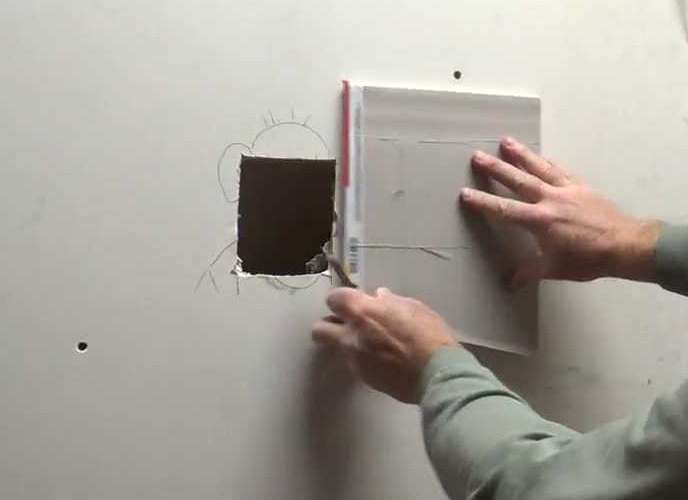Drywall, also referred to by the gypsum or plasterboard name, is a popular material for interior walls. Drywall can be constructed of a plaster core gypsum , sandwiched between two layers of fiberglass or paper.
Drywall can be easily damaged by doorknobs, furniture or an accidental impact.
Damage to the wall: When drywall is exposed to water it can warp, discolor, or become moldy.
The foundation could be moved or it can be sunk. This can cause cracks appearing in the drywall.
Ageing: With time the drywall may become soft and show cracks, or other signs of wear.
for plumbing and electrical works: New plumbing or electricity might require holes to be created in the wall.
Drywall repair typically involves filling in holes or cracks with joint compound sanding, and then painting to match the surrounding area. In the most severe instances parts of drywall might need to be replaced entirely. It is essential to tackle drywall repair issues quickly in order to prevent further destruction. Take a look at the best the full report about drywall calgary contractors for more tips including painting and drywall contractors near me, drywall repair contractors near me, commercial drywall contractors near me, commercial drywall contractors, sheetrock contractors, drywall company near me, drywallcontractors, licensed drywall contractors, best drywall installers near me, drywall near me contractor and more.

What Happens To The Drywall And How Can It Be Fixed?
Regarding framing insulation, soundproofing, patching, mudding, and taping to the finished product, fixing drywall is a process that requires several steps to create the seamless, finished product. This involves the framing and insulation process, soundproofing, as well as patching, taping and mudding. Here is an overview: Framing. The framing might require repair or replacement if the damage to the wall is due to structural problems.
Insulation Once the framing has been put in place, insulation might need to be put in the wall cavity. This is particularly true for exterior walls or walls which divide living spaces.
Soundproofing If you want to soundproof your home, another layer could be added between framing drywall. This can reduce noise transmission between rooms.
Patching: When the framing, insulation, and soundproofing are complete, any damaged drywall should be removed and patched with new drywall. This may involve the removal of damaged sections and then replacing the damaged sections with new drywall.
Taping to create a smooth surface, it is recommended to tap the joints between the pieces of drywall after they have been positioned. You'll need to apply joint compound and tape the joints.
Apply the joint compound after tape has been put on. It will fill in any holes and smooth out the surface. This may require multiple coats of joint compound, and sanding between coats to smooth the surface.
Painting: Once the joint compound has dried it is possible to paint the drywall to match your room. It may take several coats , depending on the final finish you want.
While drywall repairs is time-consuming, it can be done with professionalism and care.

Tips And Advice On Choosing A Drywall Contractor
A reputable contractor will ensure that the project is completed to schedule and on budget. Here are some tips and advice on choosing a drywall contractor: Get referrals: Ask relatives, friends or acquaintances for recommendations. The best method of finding an expert is via word-of mouth recommendations.
Online research: Look up reviews about local drywall businesses on Google, Yelp and other review websites. This will give you a good idea of their standing as well as the quality of their work.
Verify the credentials of your contractor Check that your contractor is insured, licensed and bonded. This protects you against any injuries or damages that might be caused during the course of the project.
Request estimates: At minimum, three estimates must be requested. This will let you determine the cost range and spot the red flags.
Ask questions: You should not be afraid to ask the contractor questions regarding their process, materials, and expertise. A good contractor will be eager to help you and explain how they think.
Effectively communicate and be responsive A contractor who communicates well and is easy to reach. It will guarantee that your project is on time and you are pleased with the end result.
Request references: Request references and then follow up with them. This will provide you with an understanding of the contractor’s work quality as well as professionalism and other aspects.
These suggestions will help you locate a drywall business that is trustworthy, skilled and suitable for your needs.